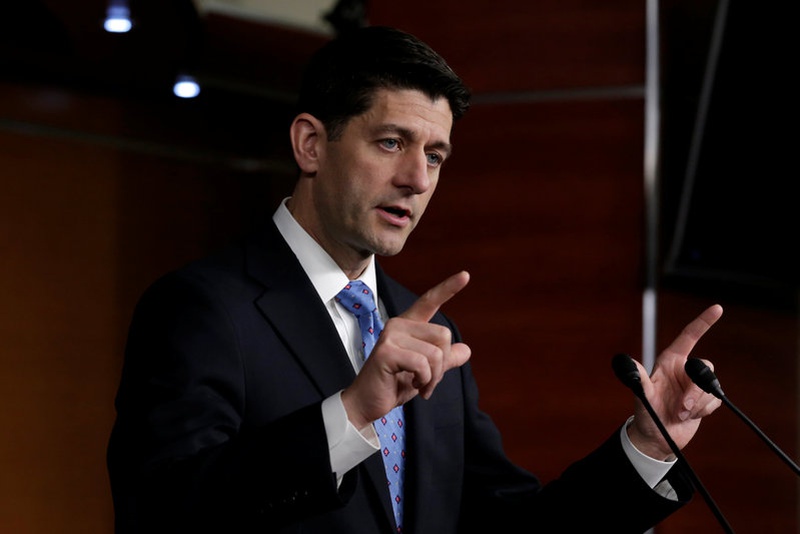With former FBI director James Comey’s testimony in the Senate completed, the other big news on Capitol Hill came late this afternoon: a vote in the Republican-controlled House to substantially gut the Dodd-Frank restrictions imposed on the banking industry following the 2008 housing market collapse.
As expected, the new bill generated a thorough partisan split among House members, passing by a 233-186 margin. Speaker Paul Ryan calls the legislation a “rescue of Main Street America” that would repeal about 40 Dodd-Frank regulations. Veteran Democrats have labeled the measure the “worst legislation” they’ve ever seen, according to The Hill.
To prevent a repeat of the ‘08 meltdown, the Dodd-Frank law cracked down on reckless lending and investment practices by setting new requirements on banks’ capital assets and liquidity, mandating twice-annual “stress tests” to determine stability, and allowing federal regulators to dismantle failing banks under a process that eliminates the “too big to fail designation” that became infamous during the housing crisis.
The GOP sees the 2010 Dodd-Frank reforms as a dramatic overreaction; the Dems view the attempt to strip away many of the new regulations as playing with fire.
Perhaps the biggest partisan divide centers on the Consumer Financial Protection Bureau, which protects the public from scams and hidden fees associated with mortgages, personal loans and debt collection. The bureau has secured billions of dollars for consumers who were wronged. In Michigan, the CFPB has handled nearly 20,000 complaints since late 2011.
But the CFPB is a largely autonomous agency and congressional Republicans want to replace it with an agency that demonstrates far less power and whose budget is controlled by Capitol Hill.
Michigan’s key lawmaker in this fight, Democratic Rep. Dan Kildee of Flint, said this to his colleagues on the House Financial Services Committee just prior to their approval of the legislation:
“This bill gives Wall Street yet another handout, while ignoring the needs of hardworking Americans. (It) takes us back to the days of Wall Street predatory lending and profiting on the backs of consumers — the same reckless behavior that brought our economy to the brink of collapse in 2008.”
Republicans counter that the Dodd-Frank regulations went too far and have devastated community banks and credit unions, putting many out of business. The restrictions have substantially reduced lending at the local level, they say, which blocks small businesses’ ability to expand or modernize.
While the GOP focuses on Main Street, one centrist group has joined the chorus of Democrats who see the legislation as a gift to Wall Street.
Third Way offered a full-throated endorsement of Dodd-Frank through a statement from Jim Kessler, the group’s senior vice president for policy:
“While the nation is riveted to James Comey’s testimony today, Republicans in the House are taking the next step to repeal the Dodd-Frank law under our noses. Dodd-Frank is pro-growth, pro-market, pro-consumer, and pro-investor — and it could be one Senate vote away from being yanked out by its roots. The Financial Choice Act would completely dismantle Dodd-Frank’s most important reforms, diminish the independence of banking industry regulators, and hamstring the Consumer Financial Protection Bureau.
“Outside of the ACA repeal, this is the most dangerous legislation to come out of the Trump era. If you want another devastating financial collapse that takes a wrecking ball to the American Dream, pass the Financial Choice Act. If you want to protect and grow the economy, preserve Dodd-Frank. As this act is debated in Congress, Third Way will continue to defend Dodd-Frank’s legacy and its vital protections against financial ruin.”
While Ryan & Co. will consider today’s vote a feather in their cap, the House action will not receive applause in the Senate. Senate Banking Committee Chairman Mike Crapo (R-Idaho) reportedly remains focused on a much narrower bipartisan measure to relieve regulations on smaller banks. Knowing that the House bill could not survive a Senate filibuster, the Trump administration has urged the Senate to tackle Choice Act changes that could win Senate approval.
Photo: WHTC screenshot





